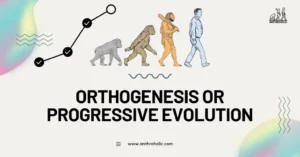AI Answer Evaluation Platform Live Now. Try Free Answer Evaluation Now
Evans Pritchard
Few anthropologists have left a mark as deep or as complex as Edward Evan Evans-Pritchard. A key figure in 20th-century British social anthropology, he helped shape the discipline’s core methods and theories-yet he also questioned its most basic assumptions.

Evans Pritchard is best known for his richly detailed ethnographies of African societies, especially the Azande and the Nuer, which became classics of the field. His work demonstrated that what might seem irrational or primitive-like witchcraft or cattle sacrifice-made perfect sense within their own cultural and symbolic systems. He was a pioneer in promoting cultural relativism and challenged Western notions of logic and rationality.
As a professor at Oxford, he shaped generations of anthropologists while publicly critiquing anthropology’s claims to scientific objectivity. Later in life, his turn toward history, theology, and interpretive methods positioned him as a bridge between scientific anthropology and the humanities.
Early Life and Education
Edward Evan Evans-Pritchard was born on September 21, 1902, in Crowborough, Sussex, England, to a devout Anglican family. Raised in a conservative and religious household, he received a classical education at Winchester College, followed by studies in modern history at Exeter College, Oxford. Although he began his academic life interested in theology and the humanities, he soon became drawn to anthropology, which at the time was gaining momentum as a systematic study of human societies.
After graduating from Oxford, Evans-Pritchard went on to pursue doctoral training at the London School of Economics (LSE), where he studied under the influential ethnologist C.G. Seligman. It was at the LSE that he encountered the evolving ideas of British social anthropology, especially those of Bronisław Malinowski, who emphasized immersive fieldwork and participant observation.
Early Fieldwork and Ethnographic Contributions
In 1927, Evans-Pritchard embarked on what would become one of the most celebrated ethnographic studies in the discipline: fieldwork among the Azande people in the southern Sudan (then part of the Anglo-Egyptian Sudan). He spent several years living with the Azande, learning their language, and carefully documenting their beliefs and social practices.
The resulting monograph, Witchcraft, Oracles and Magic Among the Azande (1937), became a landmark in anthropology. In it, Evans-Pritchard argued that Azande beliefs in witchcraft were not irrational but internally coherent systems of explanation that helped people make sense of misfortune, illness, and social conflict.
This work was revolutionary. At a time when many Western scholars viewed non-European belief systems as illogical or primitive, Evans-Pritchard insisted that such systems could only be understood on their own terms. He laid the groundwork for what would later be called cultural relativism-the idea that all belief systems have their own internal logic and should not be judged by external standards.
His methodological approach was also innovative. He employed thick description, careful contextualization, and a willingness to take Indigenous thought seriously. These qualities marked a departure from earlier, more comparative and evolutionary approaches to religion and magic.
Work Among the Nuer and Development of Structural-Functionalism
Following his work with the Azande, Evans-Pritchard conducted extended fieldwork among the Nuer, a pastoralist Nilotic-speaking people living in the Sudanese-Ethiopian borderlands. Between 1930 and 1936, he studied Nuer kinship, political organization, and ritual life, producing a trilogy of influential books:
- The Nuer: A Description of the Modes of Livelihood and Political Institutions of a Nilotic People (1940)
- Kinship and Marriage Among the Nuer (1951)
- Nuer Religion (1956)
In these works, Evans-Pritchard advanced the theory of structural-functionalism, which viewed societies as systems whose various parts (kinship, religion, politics) function to maintain social order and cohesion. His Nuer studies were especially influential in articulating segmentary lineage theory, which explained how Nuer political organization operated without centralized authority, instead relying on kinship-based alliances and flexible social groupings.
Although closely associated with British structural-functionalism-alongside contemporaries like A.R. Radcliffe-Brown-Evans-Pritchard often took a more historical and interpretive approach, especially later in his career.
Wartime Service and Political Involvement
During World War II, Evans-Pritchard took on a very different role: serving in British military intelligence in North and East Africa, particularly in Sudan, Libya, Ethiopia, and Syria. His deep knowledge of local cultures and languages made him a valuable asset. He worked on civil affairs and liaised with colonial and local leaders, especially among the Bedouin and other Arab groups.
This experience gave him firsthand exposure to the entanglements between anthropology, colonial administration, and warfare. It also sharpened his awareness of power, politics, and historical change-dimensions that were often downplayed in the abstract models of structural-functionalism. The war years helped reinforce his growing belief that anthropology must account for historical context, not just social structures.
His later ethnographic work among Libyan Bedouin-published in The Sanusi of Cyrenaica (1949)-reflected these concerns, combining ethnographic observation with political analysis of religious authority and resistance under colonial rule.
Academic Career and Theoretical Reflections
After the war, Evans-Pritchard’s academic reputation soared. In 1946, he was appointed Professor of Social Anthropology at Oxford, where he taught until his retirement in 1970. Under his leadership, Oxford became a leading center of anthropological theory and training, producing many future scholars who carried his intellectual legacy into the late 20th century.
However, Evans-Pritchard began to distance himself from the structural-functionalism he had once helped define. In a famous 1950 address, Social Anthropology: Past and Present, he criticized anthropology’s pretensions to be a natural science, arguing that the discipline should be more like history-concerned with interpretation, meaning, and human experience.
He rejected the notion that human behavior could be reduced to mechanical systems or laws. Instead, he advocated for an interpretive approach that emphasized understanding cultures from within, through their symbols, language, and values.
Evans-Pritchard also explored the intersections of anthropology and theology. A devout Christian, he converted to Roman Catholicism in the 1940s-a decision that further shaped his interest in the study of religion. He argued that religious belief systems, including Christianity, could not be fully explained in terms of function or rationality, but must be taken seriously as worldviews rooted in symbolic logic and faith.
Later Years and Legacy
Evans-Pritchard retired from Oxford in 1970, but his influence continued through his writings, students, and ongoing debates. He died on September 11, 1973, in Oxford, leaving behind a legacy that both defined and challenged 20th-century anthropology.
His career is remembered for three major contributions:
- Groundbreaking ethnographies that became models of immersive, respectful fieldwork.
- Theoretical innovation, particularly his rethinking of kinship, religion, and politics.
- A philosophical critique of anthropology’s scientific ambitions, which anticipated later interpretive approaches, such as those developed by Clifford Geertz.
Though rooted in the colonial context of British anthropology, Evans-Pritchard’s work continues to be read not just for its data, but for its methodological insight and intellectual humility. He left behind a discipline more attuned to meaning, history, and the humanity of the people it seeks to understand.
Conclusion
Edward Evans-Pritchard was a paradoxical figure: a key architect of British structural-functionalism who later undermined its core assumptions; a colonial-era ethnographer who came to champion cultural relativism and interpretive methods; a rigorous fieldworker who also engaged deeply with theology and philosophy.
His legacy rests on both his landmark ethnographies-such as Witchcraft, Oracles and Magic among the Azande and The Nuer-and his methodological shift toward understanding cultures from the inside. He showed that what might appear irrational or exotic in one culture can be completely logical and meaningful when examined within its own symbolic and social framework.
Evans-Pritchard’s critiques of anthropology’s claim to be a “science” paved the way for more reflexive and humanistic approaches, influencing later scholars like Clifford Geertz, Mary Douglas, and Talal Asad. His work also helped dismantle the sharp divide between so-called “primitive” and “modern” societies.
More than a theorist, Evans-Pritchard was a storyteller, thinker, and bridge-builder-connecting anthropology to history, philosophy, and religion. His insistence that anthropology must interpret, not just classify, continues to shape how the discipline thinks about culture and meaning today.
References
- “Edward Evan Evans-Pritchard.” Royal Anthropological Institute. https://therai.org.uk/archives-and-manuscripts/obituaries/edward-evan-evans-pritchard/Royal Anthropological Institute
- “Edward Evan Evans-Pritchard.” Store norske leksikon. https://snl.no/Edward_Evan_Evans-PritchardStore norske leksikon
- “Edward Evan Evans-Pritchard.” Southern Sudan Project. https://southernsudan.prm.ox.ac.uk/biography/pritchard/Southern Sudan Collections
- “Edward E. Evans-Pritchard.” New World Encyclopedia. https://www.newworldencyclopedia.org/entry/Edward_E._Evans-PritchardNew World Encyclopedia
- “Edward Evans-Pritchard.” iResearchNet Anthropology. https://anthropology.iresearchnet.com/edward-evans-pritchard/Anthropology
- “Edward Evan Evans-Pritchard.” Britannica Kids. https://kids.britannica.com/students/article/Edward-Evan-Evans-Pritchard/311198 Britannica Kids
- “The Anthropological Lens: Rethinking E.E. Evans-Pritchard.” University of Oxford. https://www.anthro.ox.ac.uk/article/the-anthropological-lens-rethinking-e.e.-evans-pritchard
- Anthropology at Oxford
- “Edward E. Evans-Pritchard.” Oxford Reference. https://www.oxfordreference.com/display/10.1093/oi/authority.20110803095802267
- Oxford Reference
- “Edward E. Evans-Pritchard.” Oxford Bibliographies. https://www.oxfordbibliographies.com/abstract/document/obo-9780199766567/obo-9780199766567-0006.xml




